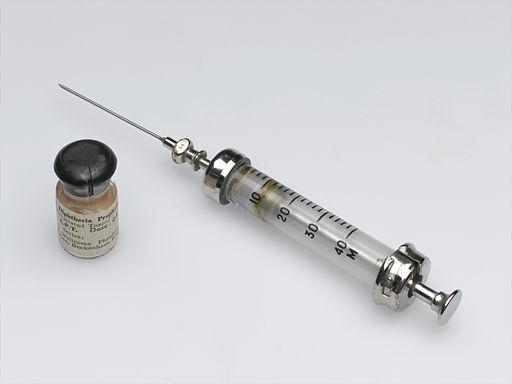Squish Like Grape
You are here
Can We Find a Middle Ground on Measles Vaccination?
Primary tabs
One side says mandatory vaccination is the best way to protect children from deadly diseases. The other side says vaccinations often cause the diseases they are supposed to prevent, and can sometimes even trigger autism. New Jersey Governor Chris Christie, a possible 2016 presidential candidate, has tried to strike a middle ground by calling for balance between public health concerns and parental choice. But is a middle ground even possible?
In the last 200 years vaccines have saved countless lives. Vaccines have enabled us to eradicate smallpox and virtually eliminate polio. In the 1990s measles had been eliminated in many countries and appeared to be headed for worldwide eradication as well.
But in 1998 British medical researcher Andrew Wakefield stirred up a controversy by publishing a study linking the measles, mumps, rubella vaccine (MMR) with the onset of autism and colitis in 12 children. Wakefield's paper caught the attention of the media in Britain and around the world. Anti-vaccine groups like Think Twice, Vaccine Liberation, and National Vaccine Information Center sprang up, using the nascent Internet to spread the word.
Within the medical community, however, Wakefield's results came under scrutiny when other researchers repeatedly failed to replicate his results. And that was just the beginning of Wakefield's problems. Investigative reporter Brian Deer found in 2004 that Wakefield had previously applied for a patent for a competing measles vaccine, and had been retained as an expert witness in a lawsuit against the manufacturers of the MMR vaccine. Deer also found that the children in his study were not selected at random but were chosen due to their parents' criticism of the vaccine. Furthermore, of the 12 children in Wakefield's study, three had never actually been diagnosed with autism, and five others had displayed symptoms before receiving the vaccine. One child, who Wakefield claimed had chronic diarrhea, actually had chronic constipation. In the end, Deer found that Wakefield had misrepresented the histories of all 12 children.
In 2010 Wakefield was convicted of fraud, and his medical license was permanently revoked. But by then it was too late. The anti-vaccine groups gained traction, planting doubts about the safety of MMR, as well as questioning its benefits. Celebrities like Jenny McCarthy and Robert Kennedy Jr. gave the movement a veneer of mainstream acceptability. Libertarian activists like Bill Maher weighed in, saying vaccination should be the parents' decision and not mandated by law. A growing number of parents--faced with so much talk about risks, and perhaps believing measles was no longer a threat--made the decision not to get their kids vaccinated.
And slowly but surely the number of measles cases began to rise, even in countries that had virtually eliminated the disease. In Britain, an outbreak in 2012 caused more than 2000 new cases. The United States experienced more than 600 cases in 2014, and this year has already seen more than 100 cases from a single outbreak at Disneyland.
The connection between the vaccine and the disappearance of measles is undeniable. Measles struck hundreds of thousands of children annually before the vaccine was developed, but as vaccinations became commonplace measles vanished.
But when parents began to opt out of vaccination, the disease made a comeback. The state of California requires all parents to disclose their children's vaccination status upon entering kindergarten. The results are clear: Schools that have more unimmunized children have more cases of not just measles, but mumps, rubella, and whooping cough.
If it were simply a matter of unimmunized children being more susceptible, it would be bad enough. But vaccinations provide an added benefit known as herd immunity. No vaccine is 100% effective; some people who get vaccinated will still be susceptible to the disease. But if enough children are vaccinated, the likelihood of a susceptible child encountering someone contagious is very low. In this way, even susceptible children are kept safe. But when a percentage of parents do not vaccinate their kids, the likelihood of a susceptible child encountering a contagious child is increased. By refusing to vaccinate your kids, you could cause someone else's kids to get the measles.
And that's why there can be no middle ground regarding vaccination. Just as we don't condone even a small percentage of the population being serial rapists or pedophiles, we can't afford to condone even a small percentage of the population refusing to vaccinate their children.
Theme by Danetsoft and Danang Probo Sayekti inspired by Maksimer




